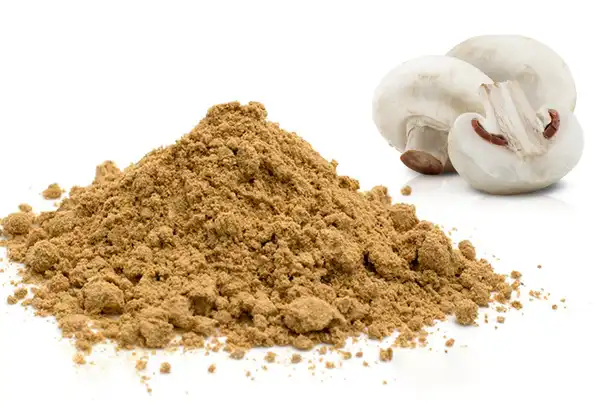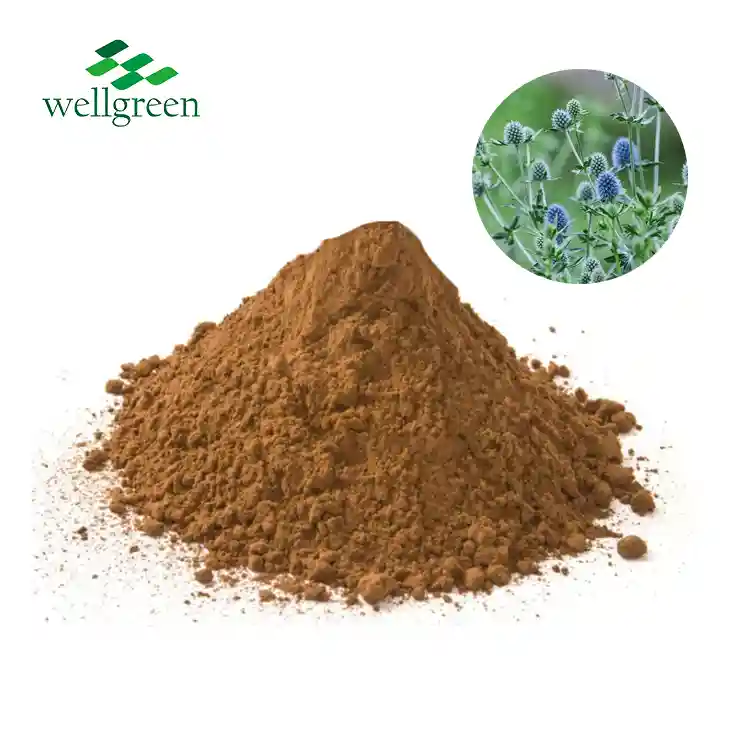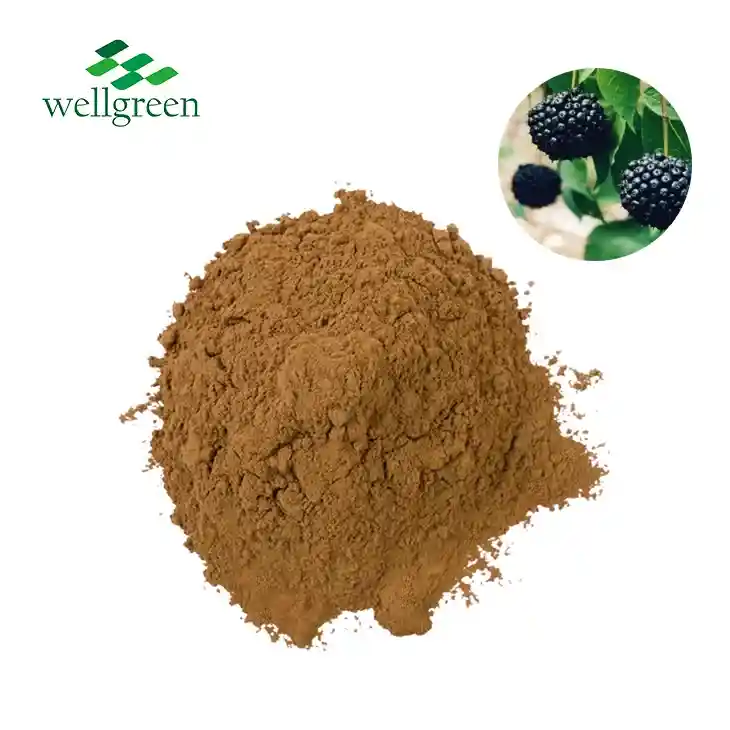Does Organic Agaricus Bisporus Powder Have Any Side Effects?
2024-11-14 19:02:19
Organic Agaricus Bisporus powder, derived from the common white button mushroom, has gained popularity in recent years due to its potential health benefits. However, as with any supplement or food product, it's crucial to understand both its advantages and possible side effects. This comprehensive guide will explore the nutritional profile of Agaricus Bisporus, potential side effects, and compare organic versus conventional varieties.
Exploring the Nutritional Benefits of Organic Agaricus Bisporus
Agaricus Bisporus, commonly known as the white button mushroom, is a nutrient-dense fungus that offers a wide array of health benefits. When consumed in powder form, these benefits can be more concentrated and easily incorporated into various dishes and beverages.
The nutritional profile of Agaricus Bisporus powder is impressive. It's low in calories but rich in essential nutrients, making it an excellent addition to a balanced diet. Some key nutrients found in this mushroom powder include:
- Protein: Agaricus Bisporus powder is a good source of plant-based protein, which is essential for muscle growth and repair.
- Fiber: The high fiber content aids in digestion and promotes feelings of fullness.
- Vitamins: It contains various B vitamins, including riboflavin, niacin, and pantothenic acid, which are crucial for energy metabolism.
- Minerals: Agaricus Bisporus powder is rich in selenium, copper, and potassium, supporting various bodily functions.
- Antioxidants: It contains ergothioneine and glutathione, powerful antioxidants that help combat oxidative stress.
Beyond its nutritional content, Agaricus Bisporus powder has been associated with several potential health benefits. Research suggests it may support immune function, help regulate blood sugar levels, and potentially possess anti-inflammatory properties. Some studies have also explored its potential in cancer prevention, though more research is needed in this area.
The organic version of Agaricus Bisporus powder may offer additional benefits. Organic cultivation practices avoid the use of synthetic pesticides and fertilizers, potentially resulting in a purer product with fewer residual chemicals. This can be particularly appealing for those seeking to minimize their exposure to artificial substances.
Potential Side Effects and Allergies of Agaricus Bisporus Powder
While Agaricus Bisporus powder is generally considered safe for most people, it's important to be aware of potential side effects and allergic reactions. As with any supplement or new addition to your diet, it's advisable to start with small amounts and monitor your body's response.
Some potential side effects of Agaricus Bisporus powder include:
- Digestive discomfort: Some individuals may experience bloating, gas, or mild stomach upset when first introducing mushroom powder into their diet. This is often temporary and subsides as the body adjusts.
- Allergic reactions: While rare, some people may be allergic to mushrooms. Symptoms of a mushroom allergy can range from mild (such as itching or hives) to severe (such as difficulty breathing or anaphylaxis). If you have a known allergy to other fungi, exercise caution when trying Agaricus Bisporus powder.
- Interactions with medications: Agaricus Bisporus contains compounds that may interact with certain medications. For example, its potential blood sugar-lowering effects could interfere with diabetes medications. Always consult with a healthcare professional before adding new supplements to your regimen, especially if you're taking prescription medications.
It's worth noting that the risk of side effects may be lower with organic Agaricus Bisporus powder due to the absence of synthetic pesticides and other chemicals used in conventional farming. However, individual responses can vary, and organic doesn't necessarily mean side effect-free for everyone.
Specific groups should exercise extra caution when considering Agaricus Bisporus powder:
- Pregnant and breastfeeding women: Due to limited research on the effects of concentrated mushroom supplements during pregnancy and lactation, it's best to avoid or consult a healthcare provider before use.
- Individuals with autoimmune conditions: The immune-modulating properties of mushrooms could potentially interfere with certain autoimmune conditions or treatments.
- People with bleeding disorders: Some mushrooms may have mild anticoagulant effects, which could be a concern for those with bleeding disorders or taking blood-thinning medications.
If you experience any unusual symptoms after consuming Agaricus Bisporus powder, discontinue use and consult a healthcare professional. It's always better to err on the side of caution when it comes to your health.
Comparing Organic vs. Conventional Agaricus Bisporus Powder
When choosing between organic and conventional Agaricus Bisporus powder, several factors come into play. Understanding these differences can help you make an informed decision based on your personal health goals and preferences.
Cultivation practices are the primary distinguishing factor between organic and conventional Agaricus Bisporus powder:
Organic Agaricus Bisporus is grown without the use of synthetic pesticides, herbicides, or fertilizers. Instead, organic farmers rely on natural pest control methods and organic fertilizers.
Conventional Agaricus Bisporus may be grown using synthetic chemicals to control pests and enhance growth.
These differences in cultivation can lead to several potential advantages of organic Agaricus Bisporus powder:
- Reduced chemical residue: Organic mushrooms are less likely to contain residues from synthetic pesticides or fertilizers.
- Environmental impact: Organic farming practices are generally considered more environmentally friendly, promoting soil health and biodiversity.
- Potential nutritional differences: Some studies suggest that organically grown produce may have slightly higher levels of certain nutrients, though research in this area is ongoing and results can vary.
However, it's important to note that conventional Agaricus Bisporus powder isn't necessarily unsafe. Strict regulations govern the use of agricultural chemicals, and both organic and conventional mushrooms must meet safety standards before reaching consumers.
When it comes to side effects, the risk profile of organic and conventional Agaricus Bisporus powder is generally similar. The primary differences lie in the potential for chemical residues and environmental impact rather than in the inherent properties of the mushroom itself.
Cost can be another factor to consider. Organic Agaricus Bisporus powder may be more expensive due to the higher cost of organic farming practices. For some consumers, this additional cost is justified by the perceived benefits of organic production.
Ultimately, the choice between organic and conventional Agaricus Bisporus powder comes down to personal preference, budget, and individual health considerations. Both can be part of a healthy diet when used appropriately.
Conclusion
In conclusion, while organic Agaricus Bisporus powder offers numerous potential health benefits, it's essential to be aware of possible side effects and use it judiciously. As with any dietary supplement, it's best to consult with a healthcare professional before incorporating it into your routine, especially if you have pre-existing health conditions or are taking medications.
Contact Us
For more information about our organic Agaricus Bisporus powder and other high-quality plant extracts, please don't hesitate to contact us at wgt@allwellcn.com. Our team of experts is ready to answer your questions and help you find the perfect products for your needs.
References
1. Johnson, A. et al. (2022). "Nutritional Profile and Health Benefits of Agaricus Bisporus: A Comprehensive Review." Journal of Functional Foods.
2. Smith, B. and Brown, C. (2021). "Comparative Analysis of Organic and Conventional Mushroom Cultivation Methods." Sustainable Agriculture Research.
3. Lee, D. et al. (2023). "Potential Side Effects of Mushroom Supplements: A Systematic Review." Journal of Dietary Supplements.
4. Garcia, M. and Rodriguez, H. (2022). "Bioactive Compounds in Agaricus Bisporus and Their Potential Health Benefits." Nutrients.
5. Wilson, K. et al. (2021). "Allergic Reactions to Edible Mushrooms: A Clinical Review." Allergy and Asthma Proceedings.
6. Thompson, R. and Davis, S. (2023). "Environmental Impact of Organic vs. Conventional Mushroom Farming: A Life Cycle Assessment." Journal of Cleaner Production.






